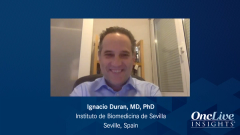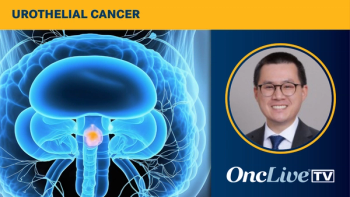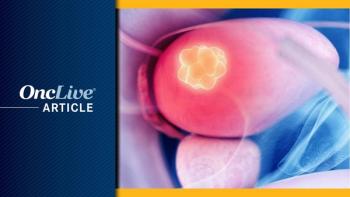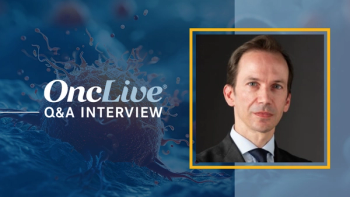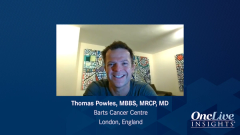
Key Takeaways on the Management of Metastatic Urothelial Carcinoma
Clinical pearls of advice regarding the optimal management of metastatic urothelial carcinoma in today’s treatment landscape.
Episodes in this series

Transcript:
Thomas Powles, MBBS, MRCP, MD: A colleague, who sees only 2 or 3 patients with bladder cancer a year, said they wanted to continue to treat bladder cancer. But they were struggling with some of the components of the PD-L1 biomarker in the front line and second line. They asked what I could do to help, and rather than saying, “Refer your patients,” what we’re doing is quite straightforward. It’s very reasonable not to test for the PD-L1 biomarker and not to give frontline immunotherapy to patients. It’s very reasonable, if you’re seeing a modest number of patients, to get control with GEM/CIS {gemcitabine-cisplatin} or GEM/CARBO [gemcitabine-carboplatin].
Again, I said to them you don’t need to worry too much about AMVAC [accelerated methotrexate, vinblastine, doxorubicin, and cisplatin] or whether or not you need triplet chemotherapy or doublet. There’s nothing wrong with GEM/CIS and GEM/CARBO up front. Actually, the way we give these drugs is really important and having a good team of people to give the chemotherapy drugs safely is more important than the subtleties of differences between the drugs. I think GEM/CARBO is actually more active than we thought historically. The most recent data suggests that GEM/CARBO has got more similarities than differences with GEM/CIS. Thus, I said give GEM/CARBO in the same way as you give GEM/CIS, and you’re likely to get similar results.
The second piece is relatively easy. You’re sequencing avelumab, and I’m tempted to give it 4 to 6 weeks after the completion of chemotherapy. As I said previously, it’s also very reasonable to not give 6 cycles for patients who are struggling. Four cycles is adequate for some patients coming into harm’s way with chemotherapy. The nuances of the data are complicated, and so is the way we got here: IMvigor130, KEYNOTE-361, DANUBE, IMvigor211, IMvigor010, KEYNOTE-052, IMvigor210, I can keep going. The complexity of these trials is potentially huge, but the treatment strategies are quite straightforward.
The important thing is to remember that urothelial cancer grows quickly; therefore, decision-making about starting therapy is important. Picking that first-line treatment correctly, starting it, and giving it well is much more important than the PD-L1 biomarker status or what the second-line choice might be. Keeping it relatively simple is probably the easiest thing at the moment.
Transcript edited for clarity.


